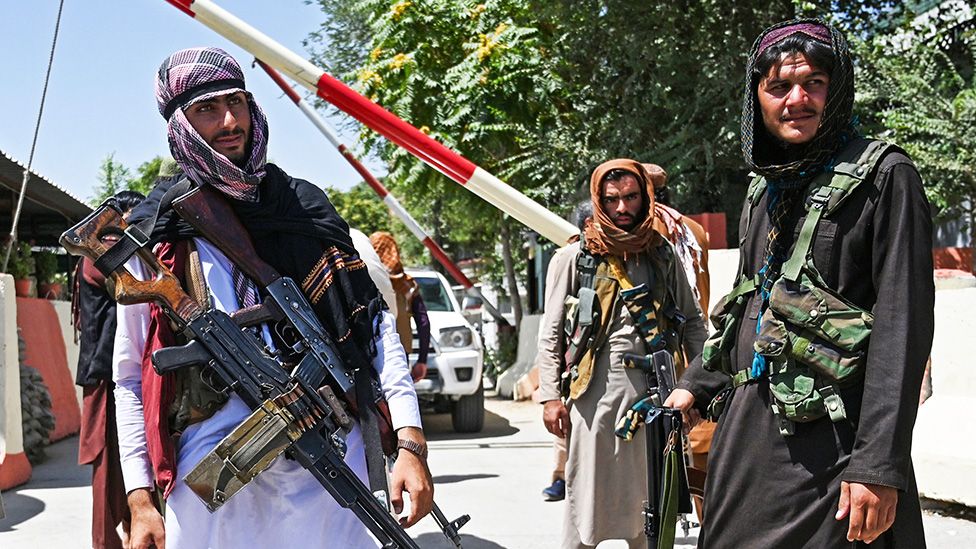Afghanistan fell prey to the hands of the Taliban group, almost 20 years after being ousted by a US-led military coalition.
Emboldened by the withdrawal of US troops, they now control all key cities in the country, including Kabul.
The people are in a state of absolute terror for the upcoming future, as the extremist group is known to enforce the strictest interpretation of Islam.
Striking images capture the Kabul exodus, showing Afghanis fleeing by clinging to planes lifting off the ground, crowding through the roads trying to drive out of the country, and carrying their luggage and attempting to cross the borders.
What can we do to support the humanitarian crisis Afghanistan?
@Bushra_Ebadi on twitter posted a list of things we can do to support Afghans in these critical times.
1) If you are not an expert on Afghanistan, have not been keeping up with the news, and are not directly impacted by what is happening, then your unsolicited opinions and takes on the matter will not help.
Sharing your unsolicited opinions may help spread inaccurate information about the crisis in Afghanistan. Accuracy is vital in this case as we need a quick international response that can only be achieved through proper education about the conflict.
You can follow and amplify the voices, work, and initiatives of Afghani activists, leaders, journalists, artists, and researchers: @mortazabehboudi@ShkulaZadran@ShafiqaKhplwak@menaayazi@ArtLordsNet@OmaidSharifi@LetsTalkAFG@Saadia_Sediq@fauziamazhar2@Ayap_af@ayedicanada@Ayap_af@khalidhanasiri@DerakhshanQ@YaldaSarwar@YoonHeela@BarakPashtana@NajeebaWazefado
2) Know that the humanitarian crisis in Afghanistan is not new but is deepening. And there are funding shortfalls. Support the work that frontline UN agencies and humanitarian organizations are doing in Afghanistan. Find out how to support them here.
3) Avoid simplistic narratives that paint the situation as an internal dispute between tribes and factions. If you’re not acknowledging the historic and ongoing role of various actors, then you’re contributing to misinformation.
You can avoid this through reading more about the history of conflict in Afghanistan and the impact of different players such as the USA, the UK, the UN and NATO.
4) Know that the US and NATO benefited from the support of local Afghans who are now being targeted. Reach out to political representatives and leaders to ensure that efforts are being made to evacuate and resettle these individuals and their families. The closing of embassies and the withdrawal of ground presence and air support will make this more difficult. So #5 is time sensitive.
You can do this by simply commenting and posting, sharing accurate information, and ask for change.
5) Call for accountability and sanctions against actors who helped bankroll the Taliban (and provide them with training and arms). This article gives some context.
6) Fund the work of Afghan peace-builders and activists around the world, especially the youth, women, and different gender and sexual identities.
7) Speak out against the targeted attacks and ethnic cleansing of marginalized Afghan communities, including the Hazara, Sikh, Hindu, and Shia Muslim people.
8) Acknowledge the disproportionate cost of conflict on Afghani people. There has been a lot of rhetoric online about the costs the US and NATO have paid for their presence in Afghanistan, as well as blame on the Afghani military forces.
9) Stop legitimizing the Taliban in peace negotiations. They will not suddenly respect human rights, especially women’s rights. Escalating Taliban attacks against journalists, school children, and persecuting religious and ethnic groups indicate the gravity of the situation.
Your voice matters. Your activities on social media matter. Your opinion matters. Do not choose silence in the face of injustice and pain.
Your knowledge is power and your educated opinion is a strong weapon. Do your best and it will be enough to change the world, as long as we all work towards the same vision of peace together.



